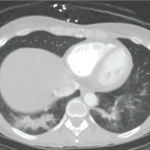
As a rheumatologist, it’s likely that most of your technology-related discussions revolve around electronic health records, voice dictation software, database management, or similar practice topics. Maybe you dabble in online forums, fancy yourself a bit of a Photoshop wizard, or even blog. Still, like me, you’ve probably begun to see how technology is permeating (or invading, take your pick) nearly every aspect of our personal and professional lives. It’s a challenge to keep up with what’s new and emerging – and what areas could benefit from technological tools. Much like exploring how therapies effective for one condition might be viable for treating another, it’s a challenge to figure out how technology applied in one area can be beneficial elsewhere.
Like most organizations, the ACR has leveraged technology to improve our day-to-day operations as well as member services. For example, you can access the journals and other publications, register for meetings, submit an abstract, download patient information and practice tools, and renew your membership online. You can also view Webcasts from our meetings, subscribe to various ACR/ARHP list serves, participate in our online recertification and maintenance of certification offerings, and search for jobs. Still, we continue to face a number of technological challenges in areas such as practice management, practice improvement, quality measurement, cost management, education, and recertification. The ACR also continually implements new internal technologies – such as our new association management system.
Like me, you’ve probably begun to see how technology is permeating (or invading, take your pick) nearly every aspect of our personal and professional lives.
TLC for Rheumatologists
To coordinate these diverse technology projects and help our members (particularly those in practice) understand the rheumatology-specific issues surrounding technology, we’ve created the Technology Leadership Council (TLC). Its charge is to coordinate and facilitate optimal use of information technology by members, staff, and volunteers so that the ACR can meet its strategic goals and members’ needs effectively.
The TLC will coordinate (rather than implement) work done by other ACR entities to ensure interoperability, prevent overlap of effort, promote optimal use of ACR resources, and maintain transparency within the organization, while also ensuring compatibility with established information technology standards, principles, and laws. The TLC will have a consultative and coordinating role in ACR information technology projects, such as data collection, implementation of quality instruments, and electronic patient records. It will be divided into five working groups – quality, research, practice, education, and general technology – so that members can focus on issues pertinent to their expertise. ACR Vice President Sherine Gabriel, MD, has agreed to chair the TLC and will be joined by several volunteers and staff who have an interest in this area.
We have a number of exciting technology-related projects in the works, many of them in the initial planning stages and not quite ready for prime time. You’ll learn more about these projects in the months ahead. If you have suggestions about technology-related efforts you’d like to see the ACR pursue, please contact me. I welcome your ideas.
Birnbaum’s Bookmarks: E-picks from the President
I’ve often felt that the world is divided into those people who grew up playing pinball machines and those who grew up playing Pac-Man. As a member of the pinball generation, I am envious of my daughters who can accurately keyboard at 100 words per minute while simultaneously listening to music on their iPod, watching television, and talking on their cell phone. While I still find myself looking at the keyboard while typing, I have certainly adopted many aspects of computer technology.
Easy E-mail: I can’t imagine being ACR president without the ability to rapidly exchange e-mails with the other executive committee members and ACR staff. On the other hand, I don’t use e-mail to communicate with patients because I think there is much to be learned by hearing the tone and inflection in someone’s voice.
While I have yet to see a truly paperless electronic medical record that would save time for a slow typist like myself, I appreciate the ability to rapidly access lab and radiology results from the hospital, and my staff couldn’t function without electronic billing.
Slick Searches: I’m continually amazed by the power of Google. I no longer use PubMed or other medical search engines. I have bought very few new textbooks since subscribing to UptoDate. However, I still prefer paper copies of journals to reading off the computer screen.
Perfect Photos: In my personal life, I switched to digital photography several years ago. I like not having to carry rolls of film on trips and the ability to instantly see (and often delete) the pictures I have taken. Of course, I still haven’t learned how to do anything more than rudimentary editing with Photoshop.
Travel Tech: As a frequent traveler, I rely on Web sites like kayak.com, travelocity.com, and orbitz.com to research the best available flights. On the other hand, I prefer talking to a live reservations clerk to be reassured that I’m actually making the best plans.
Tripadvisor.com is excellent for hotel recommendations anywhere in the world and has links to hotels.com and similar sites. I frequently use opentable.com for restaurant reservations.
It’s hard to imagine life today without a computer and even harder to believe that I started my practice thirty years ago before fax machines, cellular phones, laser printers, and high-speed color copiers. All too often I find myself struggling to understand and utilize some aspect of technology. Of course, I always know what to do – I call one of my daughters for help!
Dr. Birnbaum is president of ACR. Contact him via e-mail at [email protected].

